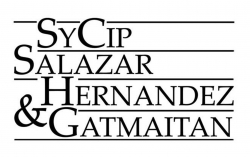8 October 2021
With the advent of RA No. 11590, a new law imposing taxes on Philippine Offshore Gaming Operations (POGOs), what path might POGOs possibly take? Will POGOs continue staying in the Philippines or will they seek shelter elsewhere? RA No. 11590 takes effect on October 8, 2021.
Under RA No. 11590, the entire gross gaming revenue or receipts of POGOs or the agreed predetermined minimum monthly revenue or receipts from gaming, whichever is higher, shall be taxed at five percent (5%) in lieu of all other direct and indirect internal revenue taxes and local taxes, with respect to gaming income (Gaming Tax). In addition, the Philippine Amusement and Gaming Corporation (PAGCOR) or any special economic zone authority, tourism zone authority, or freeport authority where POGOs are located are granted the power to impose regulatory fees not cumulatively exceeding two percent (2%) of the gross gaming revenue or receipts derived from gaming operations and similar activities of all licensed POGOs or a predetermined minimum guaranteed fee, whichever is higher. “Gross gaming revenue or receipts” means gross wagers fewer payouts.
To ensure that proper taxes and regulatory fees are levied, periodic reports about the operations of POGOs showing their gross gaming revenue or receipts shall be submitted to the BIR by PAGCOR or the concerned special economic zone authority, or freeport tourism zone authority, or freeport authority as certified by their third-party auditor which must be independent, reputable, internationally-known, and accredited by industry experts.
On the other hand, non-gaming revenues of POGOs duly-licensed by PAGCOR or any special economic zone authority, tourism zone authority, or freeport authority is subject to a tax of twenty-five percent (25%) of their taxable income (gross income less allowable deductions) from all sources within or outside the Philippines.
Sales by VAT-registered persons to POGOs subject to the Gaming Tax are subject to zero percent (0%) VAT. Services performed in the Philippines by VAT-registered service providers to licensed POGOs subject to the Gaming Tax shall likewise be subject to 0% VAT.
Alien individuals regardless of residency and who are employed and assigned in the Philippines by a POGO licensee or its service provider are subject to a final withholding tax of 25% of their “gross income” which shall be understood as including basic salary/wages, annuities, compensation, remuneration and other emoluments such as honoraria and allowances received from the POGO or its service provider. Failure of the POGO or its service provider to withhold this tax will result in the alien concerned being subject to deportation, barred from re-entering the Philippines, or blacklisted as a foreign employee by the Department of Labor and Employment, Bureau of Immigration, and other relevant agencies. Any other kind of income derived from all sources in the Philippines by the said alien individuals is subject to all existing and applicable local and national taxes.
It is noteworthy that while RA No. 11590 imposes taxes on POGOs, the declaration of policy of this law includes a statement that the State’s recognition of legal forms of gambling, including POGOs, should not be understood as a favorable State endorsement of such activity.
SyCipLaw TIP: Under RA No. 11590, resident alien individuals will be taxed the same way as non-resident alien individuals with respect to their salaries and wages from the POGO. This is an exception to the general rule on the taxation of resident alien individuals under the Tax Code. The penalty of deportation of the employee for non-withholding by the employer POGO shows that RA No. 11590 goes beyond being merely a tax measure. Alien individuals working for POGOs should ensure that their POGO employers are properly withholding the relevant taxes on their compensation, as the risk of deportation and blacklisting for failing to withhold falls not on the POGO but on the employee.
For further information, please contact:
Carina C. Laforteza, Tax Department Head,
SyCip Salazar Hernandez & Gatmaitan
cclaforteza@syciplaw.com





